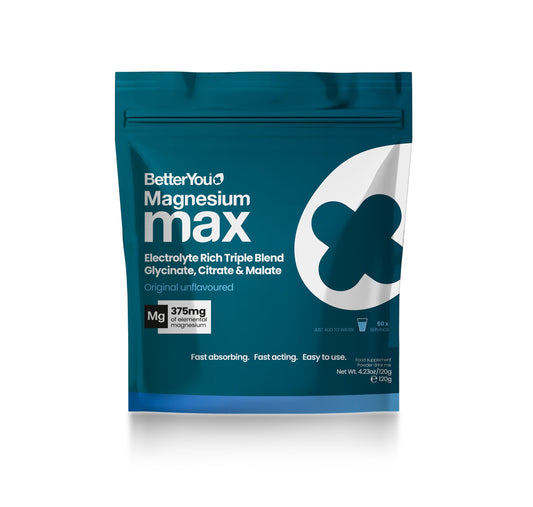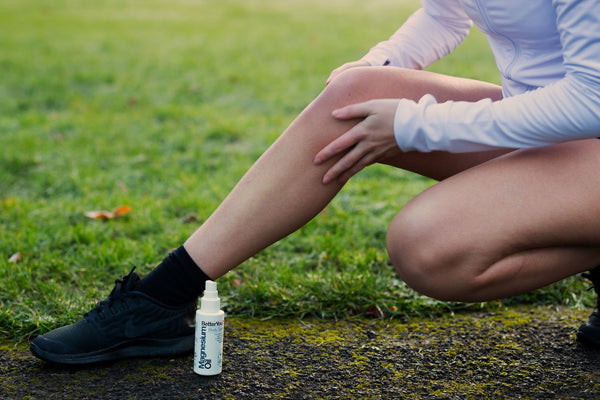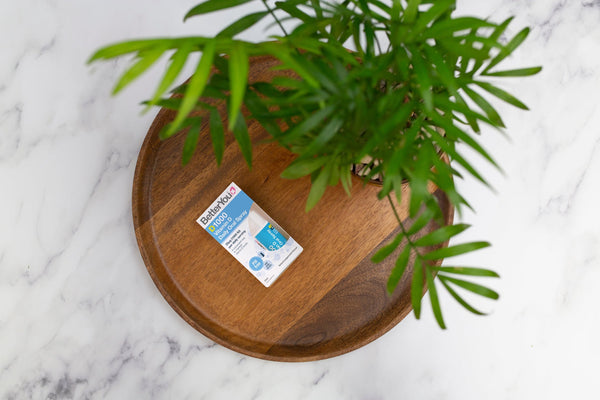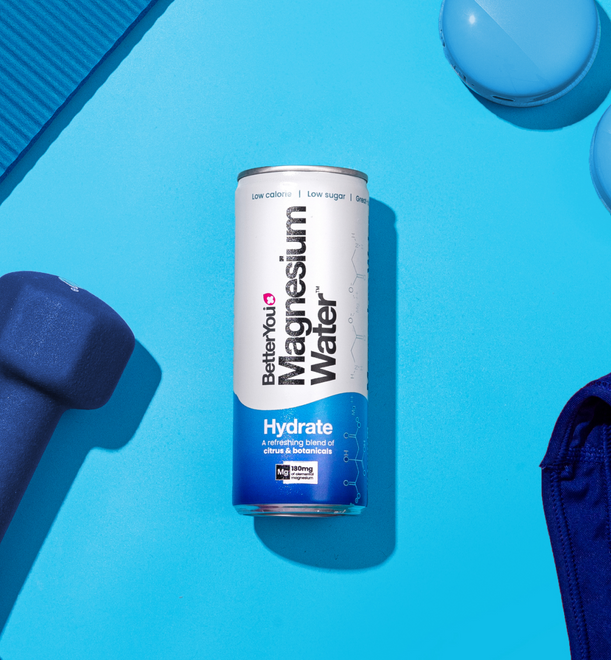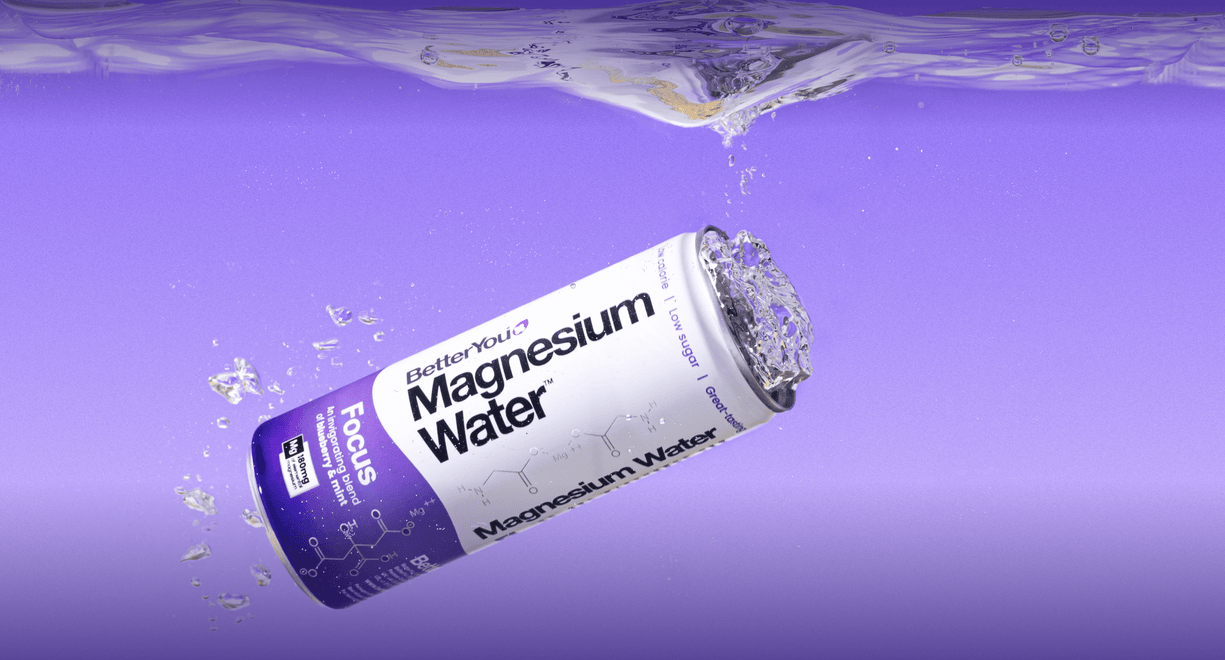Your body needs a variety of minerals and vitamins to stay healthy and function correctly. Eating a balanced and varied diet will usually provide your body with most of the vitamins and minerals you need. However, in some cases, you may be required to take additional supplements.
Having the right balance of vitamins and minerals can help to boost your immune system, support development and growth and help your body to function normally.
In this guide, we’ll be looking at the best mineral and vitamin supplements you should be taking for a variety of purposes:
Click on the links below to go to the relevant sections:
- What types of vitamins and minerals are there — fat and water soluble
- Best vitamins for hair, skin and nails
- Best vitamins for energy and tiredness
- Best vitamins for joint support
- Best supplements for runners
- Best vitamins to boost immune system
- Best vitamins for bones
- Best vitamins for vegetarians & vegans
- Best vitamins for sleep
- Best vitamins for children
What types of vitamins and minerals are there — fat and water soluble
There are two types of vitamins: fat soluble and water soluble. Fat soluble vitamins include A, D, E and K — because these vitamins dissolve in fat, your body is able to store them.
Water-soluble vitamins include B6 and B12 and need to be dissolved in water before they can be absorbed. Your body cannot store these vitamins and any vitamin C or B that your body can’t use is lost. These vitamins need to be refreshed daily.
Best vitamins for hair, skin and nails

Vitamin C
If you want to grow and strengthen your hair, Vitamin C is one of the most effective vitamins to take. It helps to produce collagen, which is important for hair growth and will make your hair:
- look shinier
- retain colour
- break less
In addition, vitamin C is found in many anti-ageing skin care products due to its role in collagen production, which keeps your skin and hair healthy. The antioxidant properties of vitamin C helps your body to repair damaged skin cells, aiding the body’s natural regeneration process.
Antioxidants help to prevent or reduce damage to your body’s cells by reducing the production of free radicals. Vitamin C also plays an important role in nail strength. A deficiency in vitamin C can prevent proper nail growth and leads to more brittle and broken nails.
Vitamin C can be found in foods such as:
- red peppers
- orange
- broccoli
- potatoes
Zinc
Zinc deficiency is a common cause of hair loss. A lack of the mineral can weaken the structural integrity of hair follicles, leading hair to fall out more quickly than usual. Zinc is commonly found in hair loss treatments due to its role in hair follicle recovery.
Zinc does not help your hair to grow but it will help to prevent hair loss due to zinc deficiency.
Zinc deficiency is also associated with weaker fingernails and acne. Your body needs zinc as part of a range of enzymatic reactions within your body, including those that have an effect on both nails and acne.
The best food sources for zinc include:
- red meat
- shellfish
- legumes
- nuts
- dairy
- eggs
Vitamin D
Although vitamin D is available within our diets, it is often in very low amounts in foods such as eggs and oily fish. The main source of vitamin D is created by our bodies when exposed to the right levels of sunlight. Deficiencies in vitamin D have been linked to conditions such as hair production because it is thought to play a part in hair growth, though its exact role is unknown.
Many people struggle to get enough Vitamin D through sunlight during the UK’s winter months so a supplement can be extremely useful. Vitamin D oral sprays provide an easy way to increase the levels of Vitamin D within the body and help to make your hair, skin and nails feel stronger and healthier.
Vitamin E
Vitamin E is another antioxidant that helps to repair and build skin tissue, helping hair growth. Vitamin E oil can be massaged on to the scalp to help reduce inflammation, increase blood and oxygen supply and repair damaged follicles.
Magnesium
Magnesium is a key mineral which aids a huge number of processes within the body. It plays a large role in stress reduction, which is linked to hair health.
If you’re lacking magnesium in your diet, the levels of fatty acid on the surface of your skin can decrease, along with your collagen levels, which help keep your skin moisturised. This means the skin on your face may become drier, uneven in tone and more prone to wrinkles.
Foods high in magnesium include:
-
- Spinach
- dark chocolate
- avocados
- cultured yoghurt
If you struggle to get enough magnesium through your diet, magnesium oil sprays provide a great way to replenish your body’s magnesium levels.
Best vitamins for energy and tiredness
Vitamin B12
Vitamin B12 plays a key role in turning the food you eat into energy for your cells to use. This will not only help to keep your nerves and blood cells healthy, it will also prevent anaemia, which can make you feel weak and tired.
If you are already getting sufficient levels of this vitamin from your diet, you are unlikely to feel a boost in energy when taking a supplement. However, if you are deficient, it’s likely that your energy levels will improve by taking a supplement. Vitamin B12 is known as one of the most difficult vitamins to be absorbed through diet alone.
B12 rich foods include: sardines, beef, tuna, salmon milk & dairy products, and eggs.
If you would like to check your B12 levels before purchasing any supplements, it’s possible to test your levels at home first. Vitamin B12 oral sprays are also available if you think you may need this vitamin to boost your energy levels.
Iron
Iron is needed by your body to create haemoglobin, a protein within your red blood cells which transports oxygen from your lungs throughout your body. If your body doesn’t have enough iron, your red blood cells cannot do this effectively which results in iron deficiency anaemia which prevents the cells in your body from getting enough oxygen. This will leave you feeling tired and fatigued and is one of the world’s most common nutritional deficiencies.
A blood test from your doctor can confirm whether tiredness and fatigue are caused by iron deficiency which can be treated either through supplements or increasing iron consumption in your diet. Or, if you’d prefer to test your own iron levels without visiting your doctor, home testing kits are available. Common sources of iron in food include: chicken, turkey, lean beef, tofu, beans, lentils and baked potatoes.
Vitamin A
Vitamin A can work alongside your immune system to defend your body’s cells and muscles against any foreign bacteria which are also known as free radicals. If free radicals are left to thrive, they will attack your muscles and cells, leaving you feeling drained and fatigued.
Supplements can help to top up the levels of vitamins which can attack free radicals which will help your muscles to relax and repair whilst working to boost your energy levels.
The best foods for increasing your Vitamin A levels include: tuna, kale, sweet potato, carrot and mango.
Vitamin D
A lack of Vitamin D is known to cause fatigue. Vitamin D functions in the same way as a hormone and every cell in our bodies has a receptor for it. It’s very difficult to get Vitamin D from diet alone and deficiency is extremely common.
Vitamin D is essential because it helps your body to regulate calcium and phosphate levels which keep bones, teeth and muscles healthy.
You can increase Vitamin D levels by spending time outside in direct sunlight. For a quick boost, you only need to spend around 10-15 minutes in direct sun to benefit but it’s important to prevent skin damage by wearing sunscreen. This will not have an impact on the amount of Vitamin D you’re able to absorb and will keep your skin safe.
In the winter, it can be difficult to spend time in sunlight so Vitamin D sprays can be another way to make sure you’re getting what you need.
Magnesium
Not getting enough magnesium in your body can lead to tiredness due to magnesium’s huge role in so many of the body’s enzymatic processes. If you are deficient in magnesium, melatonin (the sleep hormone) is also disturbed which can have a huge impact on quality and quantity of sleep.
If you want to increase magnesium levels through more than diet alone, supplements such as magnesium skin body lotions can be applied at any point during the day and will be absorbed by your body immediately.
Best vitamins for joint support
Vitamin D
Vitamin D helps your body to absorb calcium so supports your joints and is extremely important to the health and development of your bones. If you do not get enough calcium over the long-term, there is a greater chance of developing osteoporosis which can make bones more fragile and prone to breaking.
Oral vitamin D supplements are available to help you ensure you’re getting the correct levels of vitamin D to support your joints.
Best supplements for runners
Calcium
Calcium is an essential mineral for helping your bones to recover after a run and, adequate levels, will help to make bones stronger after each run. Ensuring you have enough calcium in your diet will prevent stress fractures as well as osteoporosis.
If you do not get enough calcium in your diet, your body will rely on calcium bone stores for metabolic functioning which can leave your body with a negative calcium balance, causing bone loss.
Runners constantly break down bone so, if their bodies are deficient in calcium, the bone may not be rebuilt which can increase the risk of injury.
Magnesium
Magnesium is essential for muscle function. If you exercise and are lacking magnesium within your body, your body will switch to anaerobic metabolism which causes an additional build-up of lactic acid which can cause muscle spasms and soreness.
In addition, a lack of magnesium can cause muscle twitches, spasm and cramping and will affect your recovery times.
To aid recovery after exercise and ensure magnesium levels within your body are sufficient a bath containing magnesium flakes before or after your run could help. A magnesium muscle spray can also help to support training and aid muscle recovery after training while you’re on the move.
Iron
Iron is the mineral within your body which is responsible for making sure all parts of your body receive enough oxygen. If iron levels are low, your body will have trouble getting oxygen to the right places which can lead to low energy levels with organs and muscles working at a minimum capacity and bodily functions such as recovery will be suffer.
B vitamins
B vitamins have a vital role in metabolism and how effectively your body converts the food you eat into energy for your body which is key to endurance when playing sports.
If you run regularly, you might find that you need more of the vitamin to function properly both when running and when you’re resting.
Vitamin B12 oral sprays< are one of the quickest ways to help top up the levels of B12 in your body and can be administrated quickly and gets to work quickly.
Best vitamins to boost immune system
Vitamin C
Vitamin C aids with the production of white blood cells which work to protect your body against infection. Vitamin C helps these cells to function effectively and protect them from illness-causing viruses and bacteria.
So, if you’re not getting enough Vitamin C either through your diet or through supplements, it is one of the factors that can make you more prone to picking up illnesses. You need a daily intake of Vitamin C because your body cannot produce or store it, in the same way as other water-soluble vitamins such as B vitamins.
Best vitamins for bones
Calcium
Your bones contain 99.5% of the total calcium within your body so it really is an important building block for healthy bone. You might be aware that it’s important to children to have enough calcium for bone development but it’s also important for helping to maintain bone strength throughout the rest of your lifetime too.
Magnesium
Magnesium helps to regulate calcium levels within your body and around 50-60% of your body’s magnesium is stored within your bones so, when it comes to bone health, it’s important not to overlook the role of magnesium.
Vitamin D
Vitamin D is another vitamin that works alongside calcium to strengthen bones, making them both as important as each other. It helps your body to absorb calcium and allow it to be used by your body.
Vitamin K2
While vitamin D, calcium and magnesium are all essential for bone health, vitamin K2 also plays a huge role. Vitamin K2 deficiency is linked to low bone density. It is essential for synthesising osteocalcin within our bodies which is an essential protein for maintaining bone strength. When it comes to bone health, vitamin K2 can often be overlooked but it’s essential for healthy bone mass.
Best vitamins for vegetarians & vegans
Vitamin B12
When eating a plant based or vegetarian diet, you are much more likely to be deficient in vitamin B12 as the main sources are found meat. Bodily processes such as red blood cell production and protein absorption require vitamin B12 to work correctly.
There are no known plant foods that provide a natural source of vitamin B12 so supplements are one of the only ways to make sure you’re getting enough.
Vitamin D & Calcium
Both Vitamin D and Calcium are important parts of bone health and strong teeth and, if you don’t eat dairy or other foods high in calcium, you will need to eat a huge number of dark green vegetables.
Iron
A lack of iron in your diet can cause tiredness and fatigue. Many vegans suffer from a lack of iron as it’s much harder for your body to absorb it from plant-based foods. Due to its role in the production of haemoglobin which is found in red blood cells, it’s important to be aware of iron deficiency and supplements you can take.
Iodine
Deficiency in iodine can result in weakness, fatigue and, in some case, can lead to an under-active thyroid. Many vegans struggle to ensure they get enough iodine in their diets because the amounts in plant-based foods can be inconsistent and so is difficult to keep track of.
If you’re not sure whether your diet is providing adequate levels of the vitamins and minerals listed above, you can take Vegan Health sprays which contain everything you need to stay healthy and improve the symptoms of deficiency in any of the above.
Best vitamins for sleep
Vitamin D
Deficiency in Vitamin D has been linked to disrupted and poor quality sleep. If you’re struggling to fall asleep, stay asleep or don’t feel well rested when you get up in the morning, a Vitamin D deficiency could be the problem.
Magnesium
Magnesium helps to release tension and, adequate levels will help your body and muscles to relax in preparation for sleep. Magnesium plays a role in the production of melatonin which helps to prepare your body for sleep and allows you to enjoy better quality sleep overall.
Magnesium sleep lotion and sleep sprays can be applied before bed to help muscles relax and to help you sleep better.
Iron
It might be common knowledge that iron deficiency can make you feel tired and fatigued, it can also cause Restless Legs Syndrome. This condition causes constant movements and twitching sensations in your legs as you’re trying to fall asleep. If you find that you’re feeling tired or suffering from this condition, try incorporating more iron into your diet or take additional supplements.
Best vitamins for children
Vitamin A
For children, Vitamin A helps to promote normal growth and development, tissue and bone repair, healthy skin, eyes and immune responses – all of which are important for children’s development. Good sources of Vitamin A include milk, cheese, eggs and vegetables such as carrots, yams or squashes.
B vitamins
B2, B3, B6 and B12 vitamins are all important for aiding metabolism, energy production and healthy circulatory and nervous systems. This helps to promote healthy muscles, connective tissue and skin. By helping the body to absorb calcium, these vitamins promote bone and tooth formation too. Good sources are meat, chicken, fish, eggs, milk, cheese, beans and soybeans.
Calcium
Without adequate Calcium or Vitamin D levels, bones can become weak and brittle. Bone growth is most active during childhood and adolescence so is when calcium is needed the most. The more calcium absorbed and the higher the bone mass developed in early years, the lower the risk of poor bone health later in life.
Magnesium
Ensuring children receive the adequate amount of magnesium in their diets can help with sleep, mood, concentration, energy levels, bone and teeth health, immune system, and a range of other bodily functions. For more information on the benefits of magnesium for children, read here.
